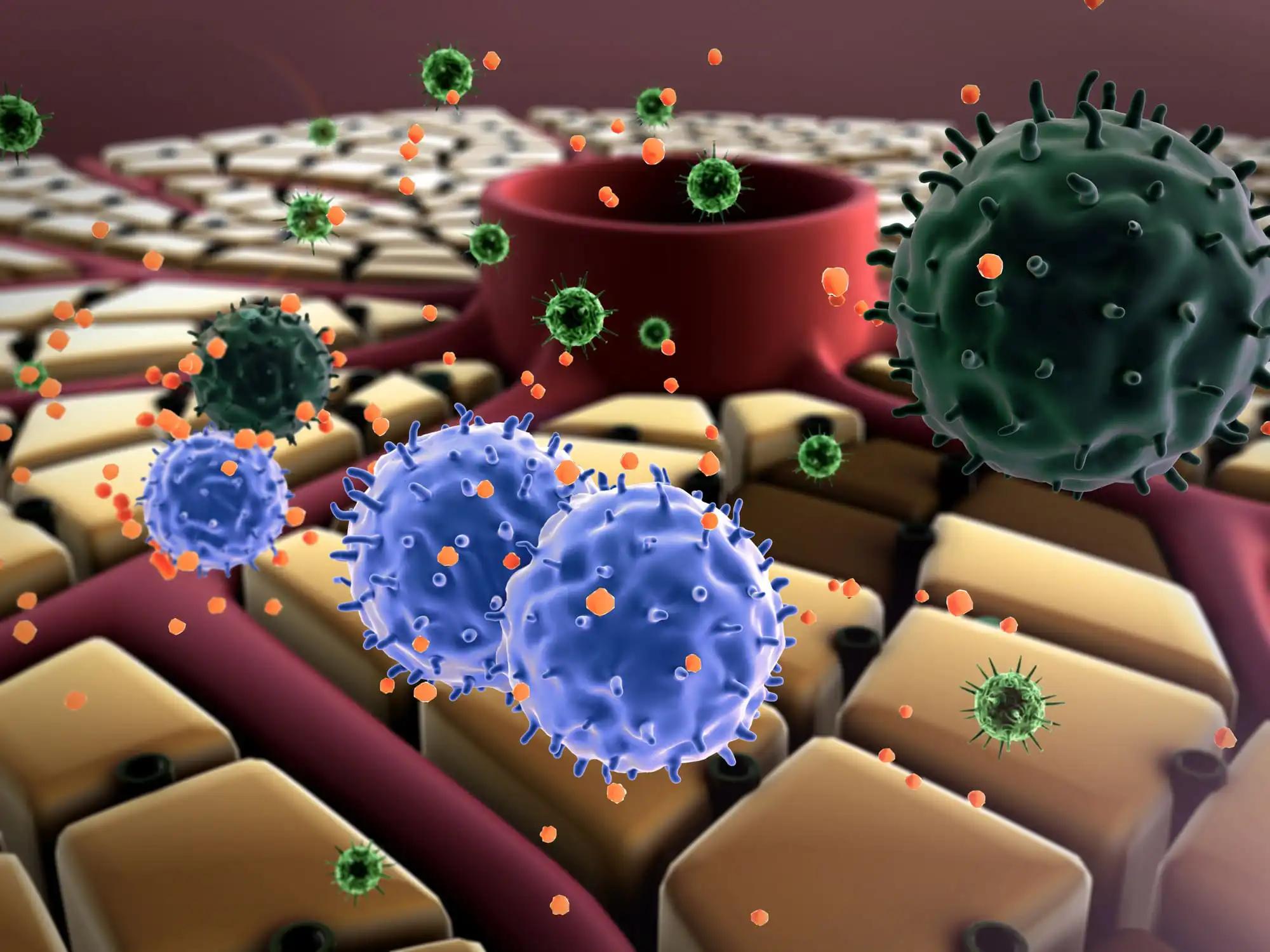KEY TAKEAWAYS
- The CheckMate 9DW phase 3 trial aimed to investigate the OS benefit and safety profile of 1L NIVO + IPI compared to LEN/SOR in patients with uHCC.
- The primary endpoint was to determine OS.
- Researchers observed a significant OS benefit with NIVO + IPI, supporting its use as a 1L treatment for uHCC.
In the phase 3 CheckMate 9DW study, first-line (1L) nivolumab (NIVO) plus ipilimumab (IPI) demonstrated a statistically significant and clinically meaningful overall survival (OS) advantage compared to lenvatinib (LEN) or sorafenib (SOR) in patients with unresectable hepatocellular carcinoma (uHCC) (NCT04039607). This abstract presents additional exploratory analyses based on the preplanned interim results of the study.
Thomas Decaens and the team aimed to assess the efficacy, safety, and response durability of NIVO + IPI versus LEN/SOR as a 1L treatment option in previously untreated patients with uHCC.
They performed an inclusive analysis in patients with previously untreated hepatocellular carcinoma (HCC) who were not eligible for curative surgical or locoregional therapies. Eligible patients had a Child-Pugh score of 5 or 6 and an ECOG performance status of 0 or 1.
Participants were randomized in a 1:1 ratio to receive either NIVO 1 mg/kg combined with IPI 3 mg/kg every 3 weeks (up to 4 cycles, followed by NIVO 480 mg every 4 weeks) or LEN 8 mg or 12 mg daily, or SOR 400 mg twice daily, continuing until disease progression or unacceptable toxicity. NIVO treatment was limited to a maximum duration of 2 years.
The primary endpoint was OS, while secondary endpoints included objective response rate (ORR) and duration of response (DOR) as evaluated by blinded independent central review (BICR) using RECIST v1.1 criteria.
About 668 patients were randomized to receive either NIVO + IPI (n = 335) or LEN/SOR (n = 333). With a median follow-up of 35.2 months (range 26.8–48.9 months), the median OS was 23.7 months (95% CI 18.8–29.4) for patients treated with NIVO + IPI, compared to 20.6 months (95% CI 17.5–22.5) for those receiving LEN/SOR (HR 0.79; 95% CI 0.65–0.96; P = 0.0180). The 24-month OS rates were 49% (95% CI 44–55) with NIVO + IPI and 39% (95% CI 34–45) with LEN/SOR. The OS benefit was generally consistent across patient subgroups.
The ORR was significantly higher with NIVO + IPI compared to LEN/SOR (36% [95% CI 31–42] vs 13% [95% CI 10–17]; P < 0.0001), with a higher complete response rate observed in the NIVO + IPI group (7% vs 2%) and more durable responses (median DOR: 30.4 months [95% CI 21.2–not estimable] vs 12.9 months [95% CI 10.2–31.2] with LEN/SOR).
Any-grade treatment-related adverse events (TRAEs) were reported in 84% of patients treated with NIVO + IPI compared to 91% of those receiving LEN/SOR, with grade 3–4 TRAEs occurring in 41% and 42% of patients, respectively. Additional exploratory efficacy and safety analyses will be presented.
The study concluded that in patients with previously untreated uHCC, NIVO + IPI demonstrated a statistically significant OS benefit compared to LEN/SOR. This was accompanied by higher ORR, durable responses, and manageable safety profiles. These findings reinforce NIVO + IPI as a promising 1L treatment option for uHCC.
The trial was sponsored by the Bristol-Myers Squibb.
Source: https://cslide.ctimeetingtech.com/esmo2024/attendee/confcal/show/session/234
Clinical Trial: https://clinicaltrials.gov/study/NCT04039607
Decaens T, Yau T, Kudo M, et al. (2024). “Nivolumab (NIVO) plus ipilimumab (IPI) vs lenvatinib (LEN) or sorafenib (SOR) as first-line (1L) treatment for unresectable hepatocellular carcinoma (uHCC): Expanded analyses from CheckMate 9DW.” Presented at ESMO 2024 (Abstract 965MO).



